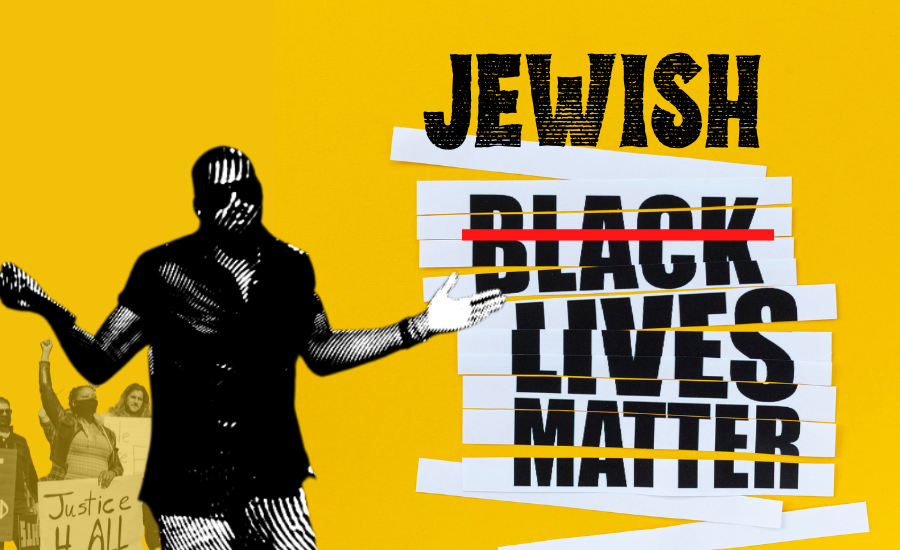Antisemitism: What you should know
David Cliff / Sopa Images / Getty Images/EEW Magazine
We have heard a lot of talk about antisemitism lately owed to Ye— the artist formerly known as Kanye West—writing anti-Jewish rhetoric on social media.
While there is no shortage of individuals conversing about Ye online, few are taking advantage of the golden opportunity to examine the origins of antisemitism and help others understand its insidious nature better.
A wealth of resources is available on antisemitism in the Holocaust Encyclopedia.
The word antisemitism means prejudice against or hatred of Jews. The Holocaust, state-sponsored persecution and murder of European Jews by Nazi Germany and its collaborators between 1933 and 1945, is history’s most extreme example of antisemitism.
In 1879, German journalist Wilhelm Marr originated the term antisemitism, denoting the hatred of Jews and various liberal, cosmopolitan, and international political trends of the eighteenth and nineteenth centuries often associated with Jews. The trends under attack included equal civil rights, constitutional democracy, free trade, socialism, finance capitalism, and pacifism.
Antisemitism in History
The specific hatred of Jews came before the modern era and the coining of the term antisemitism. Among the most common manifestations of antisemitism throughout history were pogroms which were violent riots launched against Jews and frequently encouraged by government authorities. Pogroms were often incited by blood libels—false rumors that Jews used the blood of Christian children for ritual purposes.
In the modern era, antisemites added a political dimension to their ideology of hatred. In the last third of the nineteenth century, antisemitic political parties were formed in Germany, France, and Austria. Publications such as the Protocols of the Elders of Zion generated or provided support for fraudulent theories of an international Jewish conspiracy. A potent component of political antisemitism was nationalism, whose adherents often falsely denounced Jews as disloyal citizens.
The nineteenth century xenophobic "voelkisch movement" (folk or people’s movement) emerged. It was made up of German philosophers, scholars, and artists that viewed the Jewish spirit as alien to Germandom and shaped a notion of the Jew as "non-German."
Theorists of racial anthropology provided pseudoscientific backing for this idea.
The Beginnings of Nazi Antisemitism
The Nazi Party, founded in 1919 and led by Adolf Hitler, gave political expression to theories of racism. In part, the Nazi Party gained popularity by disseminating anti-Jewish propaganda. Millions bought Hitler's book, Mein Kampf (My Struggle), which called for the removal of Jews from Germany.
With the Nazi rise to power in 1933, the party ordered anti-Jewish economic boycotts, staged book burnings, and enacted discriminatory anti-Jewish legislation. In 1935, the Nuremberg Laws racially defined Jews by “blood” and ordered the total separation of so-called "Aryans" and "non-Aryans,” thereby legalizing a racist hierarchy.
On the night of November 9, 1938, the Nazis destroyed synagogues and the shop windows of Jewish-owned stores throughout Germany and Austria, an event now known as the Kristallnacht. It marked a transition to an era of destruction, in which genocide would become the singular focus of Nazi antisemitism.
This radicalization culminated in the mass murder of six million Jews. During World War II, Nazi Germany and its allies and collaborators killed nearly two out of every three European Jews using deadly living conditions, brutal mistreatment, mass shootings and gassings, and specially designed killing centers.
To this day, there are Holocaust deniers. As recently as September 2022, Iranian President Ebrahim Raisi commented that “there are some signs” that the Holocaust happened but that the issue required more research. He said this during an interview with CBS’ “60 Minutes” on the eve of his visit to New York for the U.N. General Assembly—remarks that sparked an outcry from Israeli officials who denounced the remarks as antisemitic Holocaust denial.
Soon after the interview aired, outrage spread in Israel, a country home to tens of thousands of Holocaust survivors. Dani Dayan, the chairman of Israel’s official Holocaust memorial center Yad Vashem rebuked Raisi as a “despicable anti-Semite.”
“Even casting doubts on the occurrence of the Holocaust is one of the most abhorrent forms of antisemitism,” said Dayan.






